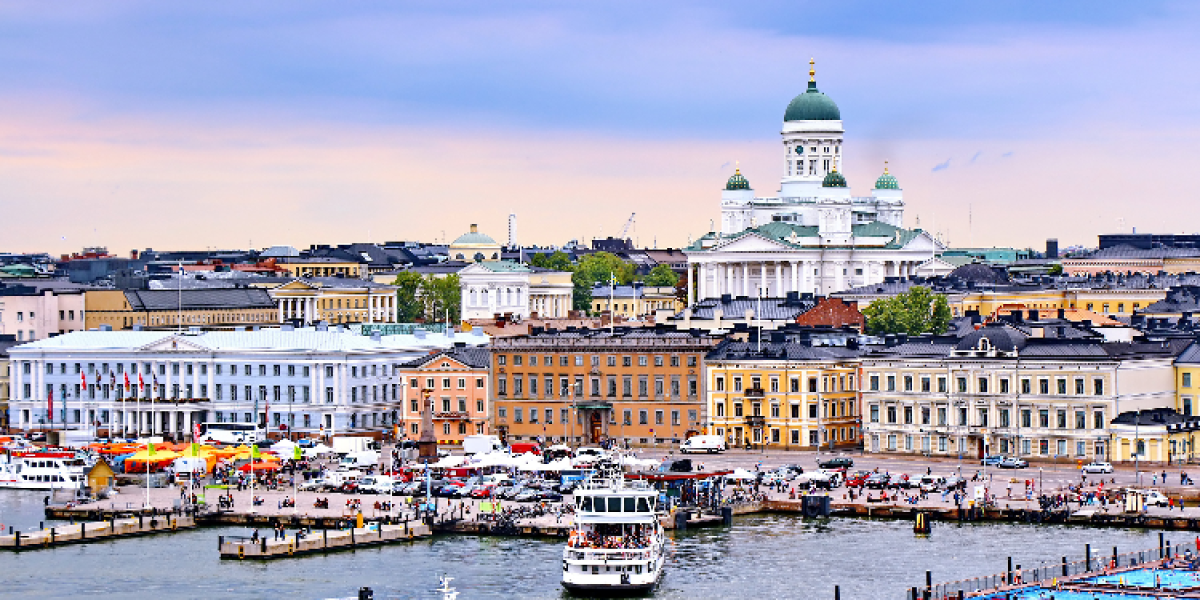
Born in the Dominican Republic, Dolores is a psychologist. Having lived in Spain for 19 years, she also has Spanish nationality. But two years ago, she relocated to Finland, where she founded an association of Dominican professionals. She talks to us about her expat experience in her new home.
You are the founder of an association of Dominican professionals in Finland. What were your motivations?
The idea arose when I moved to Finland in 2020. When I arrived, I found that there isn't any institution or association representing Dominicans in Finland. Therefore, everything depends on the Dominican consulate in Sweden. Some of my friends told me about the difficulties they with their administrative procedures, mainly because of the language barrier. The exchange rate, since Sweden does not have the euro as its currency, makes things worse.
On the other hand, there is no formal register or any other record with up-to-date demographic data on the Dominican community in Finland or a place where we can meet and organize cultural activities.
Basically, we seek to unite and support the Dominican community in Finland by creating a monthly newsletter in which we will publish topics relevant to Dominicans in Finland. In addition, we currently have a blog where we provide information on administrative, personal and general questions that expatriates may have. We are also very active on social media, including Facebook, Twitter and WhatsApp.
One of our long-term goals is to create a place where Dominicans can get together, for example, to celebrate our national holidays and, at the same time, promote our culture through art, gastronomy and Dominican painting. Our second long-term goal is to create a polling station for Dominican citizens.
What are the main challenges you faced when settling in Finland, and how did you overcome them?
The challenges are many, but the language barrier is significant. The Finnish language is only spoken in Finland. Grammatically, it is very different from Spanish, which is the Dominicans' mother tongue. Aside from the local culture, Finns are generally introverted people: they keep to themselves and enjoy the silence, unlike the Dominican or Latin culture, which is characterized by the bonds with friends and acquaintances. Latinos have a very outgoing personality and enjoy active discussions.
The Finnish climate is another issue. It's not easy to adapt to winter, with temperatures going beyond -30 or -50 degrees Celsius. Sometimes we go months without seeing the sunlight. Summers, on the other hand, are unique: there are months when it hardly gets dark.
Finding a job is not an easy task either. Besides having to adapt to extreme weather conditions, expats need a degree for absolutely any type of position. For example, you cannot even work in the childcare field or as a maid without having the appropriate qualifications.
What factors should be taken into account to better adapt to Finland?
Despite all that I've mentioned above, expats can still adapt to Finnish society and culture. Once you have settled in Finland, you are entitled to a wide range of integration resources. For example, residents are entitled to get a health card, allowing them to benefit from a variety of social services (Kela). They also benefit from the integration program set up by the employment agency (Te-palvelut). They will get the support of a coach who will facilitate their job search according to their priorities and skills. This integration program includes a daily 6-hours Finnish face-to-face language course and for one year so that you can learn the language as quickly as possible. It's worth noting that the course offers all the facilities in terms of cutting-edge technology, and all the necessary material (including books and school supplies) for free. You will also receive an allowance for daily transportation and food.
Culturally, Finland is one of the countries with the best universal education system globally. Children can access a range of extracurricular and sports activities such as skiing, ice skating, football, Olympic sports, languages classes (children usually speak three or four languages here), art, music, painting, etc. Schools also provide free technological devices in addition to a balanced diet.
What are the things you like the most about Finland? Conversely, what do you miss the most about your home country?
There are many positive things about Finland that I appreciate, such as the safety of the citizens. Here, 5-year-old children go to school independently (they may even walk a kilometre or two) and take the bus alone. There is hardly any street crime. Besides, Finland usually ranks among the best countries globally in terms of transparency. The absence of corruption is one of the factors that keep society moving forward. I must admit that my children really like their school, and their happiness matters to me and contributes to my well-being. That being said, I miss my family and Dominican cafes.
What do you like most about your new city?
What I like most here is the proximity and efficiency of essential services like supermarkets, health centres, post office, school, public transport, library and the natural spots (there are many lakes) and forests where you can do a lot of sports activities.
What are your views on Finnish culture?
The country is really rich when it comes to music, cinema, gastronomy, art, etc. For instance, Finland is the birthplace of Heavy Metal music: there are festivals everywhere, especially in summer. Regarding the local cuisine, rye bread is a speciality. I live in a small town called Lappeenranta, and this year it was declared the greenest city in Europe. Finns take environmental issues very seriously. Moreover, most Finnish films or movie scenes shot in Finland include sauna scenes -- one of the essential aspects of Finnish culture.



















